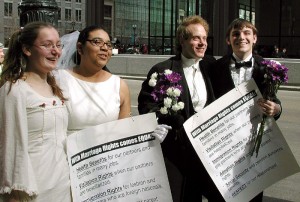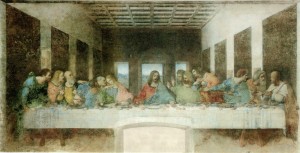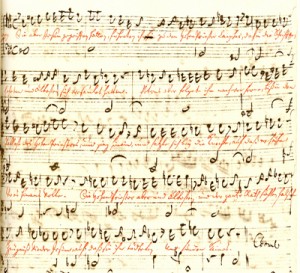Finding Happiness Between My Desires and God’s Will
31 Jul 2013 12 Comments
in Bible, Christian praxis, Pwn All The Things, Q&A, Shop Talk, Theology
 I’ve discovered that one of the things that motivates me to write swiftly and, evidently, pretty decently is when I encounter pointed questions from people about whom I deeply care. (Also, when topics arise that just happen to weirdly pique my interest.) So, I’ve decided to launch a new Q&A series addressing stuff like this as it organically arises in my conversation with folks. For this first installment, we’ll take a look at an example of one whole category of questions that I hear with greater frequency than anything else from people who are earnestly trying to follow Jesus. Enjoy!
I’ve discovered that one of the things that motivates me to write swiftly and, evidently, pretty decently is when I encounter pointed questions from people about whom I deeply care. (Also, when topics arise that just happen to weirdly pique my interest.) So, I’ve decided to launch a new Q&A series addressing stuff like this as it organically arises in my conversation with folks. For this first installment, we’ll take a look at an example of one whole category of questions that I hear with greater frequency than anything else from people who are earnestly trying to follow Jesus. Enjoy!
Q. How does one truly, totally trust God? What part do my desires and sense of “need” play in the process? For years, I’ve heard that the Creator of the universe doesn’t need my help–God already knows how every series of events is going to play out in the end, including all my decisions. So, do I restrain my own wishes and just go with the flow as life progresses? Or do I take action when some particular set of conditions come into play? In either case, what does it mean to trust God amidst all this?
Trying to resolve this question has always been really tough for me. I have repeatedly tried to “be in God’s will” with all that I am and all that I do. And I have also been told that being “in God’s will” means that I would be happy and at peace. When I was younger, I was also told by a lot of people possessing some sort of spiritual authority precisely what God’s will was–basically, I was told that my own wishes and desires didn’t matter. As I look back on everything I’ve been through over the years, I can honestly say that I have experienced a lot of happy times in my life; however, I cannot say that I am happy and “at peace.” And so now, I have a really hard time believing that I will ever get what I really want–leaving it to God alone to work out supernaturally or something–and so I am compelled to try and help Him get the ball rolling!
What part do my desires play in living in a God-honoring way? This conflict of desires and disconnect between what I have been told about how my life in God should look for feel can cause a lot of stress.
What a great question! The standard, from-the-hip Bible verse people often bust out on this topic of Proverbs 3:5-6 is actually pretty instructive: Trusting in God with all your heart means NOT merely taking your own counsel alone, acknowledging God in every dimension of your life, and walking the path towards which God directs you when that actually happens. Conflicting desires are just a process challenge, meaning they present no fundamental barrier to moving towards some goal that God finds satisfying while you trust God.
Sure, there are times where we want something that is not in our best interests to pursue, in which case you could say that our desires truly conflict with God’s will–I find that cases like these are usually the really obvious ones where we are morally obligated to do or not do something, e.g. steal, lie, cheat, dodge legitimate responsibility, appropriately love our neighbor, etc. On the other hand, it’s possible for God to be totally okay with multiple different outcomes in the case of morally permissible activity, e.g. which godly spouse do I marry, which pair of shoes do I wear today, which healthy faith community do I join, which decent job do I work / carrier path do I embark upon, etc. In cases like these, it’s possible to encounter conflicting desires where no particular course of action once chosen would conflict with God’s will because all courses of action under consideration are morally permissible. In my experience, this is the majority of life; in fact, we can actually expect to encounter more situations like this as we grow in strength and encounter more possible options.
In the event that we don’t know how to reconcile conflicting desires where all of those desires are basically ethical, trusting God at least in part means picking an option (even if that option is rejecting all courses of immediate action to gain more clarity, wisdom, etc. before making a move) while believing that God will remain with us and continue to love us moment by moment even in that place of ambiguity of future outcome. This is one reason why an oppositional state of affairs to trusting God is worrying, and that’s why Jesus instructs his followers to eschew worrying specifically by trusting God, e.g. Matthew 6:24-34:
“No one can serve two masters. Either you will hate the one and love the other, or you will be devoted to the one and despise the other. You cannot serve both God and money. Therefore I tell you, do not worry about your life, what you will eat or drink; or about your body, what you will wear. Is not life more than food, and the body more than clothes? Look at the birds of the air; they do not sow or reap or store away in barns, and yet your heavenly Father feeds them. Are you not much more valuable than they? Can any one of you by worrying add a single hour to your life?
“And why do you worry about clothes? See how the flowers of the field grow. They do not labor or spin. Yet I tell you that not even Solomon in all his splendor was dressed like one of these. If that is how God clothes the grass of the field, which is here today and tomorrow is thrown into the fire, will he not much more clothe you—you of little faith? So do not worry, saying, ‘What shall we eat?’ or ‘What shall we drink?’ or ‘What shall we wear?’ For the pagans run after all these things, and your heavenly Father knows that you need them. But seek first his kingdom and his righteousness, and all these things will be given to you as well. Therefore do not worry about tomorrow, for tomorrow will worry about itself. Each day has enough trouble of its own.”
 That said, the sort of peace that scripture promises us when we rightly pursue God, eschew worry, and embrace a posture of trust does not refer to a total cessation of all tension in our lives. Rather, it refers to a state of harmony or complementarity between the trajectory of our lives and God’s purposes. Think of it like this: Right now, I am “at peace” with the President of the United States because my activity as a citizen of the United States harmonizes with the overall trajectory of that President and our humanly instituted government. Nevertheless, I still encounter points of tension in my life–and this would be true even if the President were perfect like God and the United States government was absolutely just and loving, like the Kingdom of God as it breaks into our world. Why is that? Because life! On this side of history before Christ’s triumphal return, we may find wholeness and strength and unity with God and with each other, but we will not find a total cessation of all tension–a wiping away of every tear with “no more death or mourning or crying or pain” described by passages of scripture like Revelation 21:4–because these are all aspects of a future state of affairs depending on God’s institution of total justice on the far side of Jesus’s second coming.
That said, the sort of peace that scripture promises us when we rightly pursue God, eschew worry, and embrace a posture of trust does not refer to a total cessation of all tension in our lives. Rather, it refers to a state of harmony or complementarity between the trajectory of our lives and God’s purposes. Think of it like this: Right now, I am “at peace” with the President of the United States because my activity as a citizen of the United States harmonizes with the overall trajectory of that President and our humanly instituted government. Nevertheless, I still encounter points of tension in my life–and this would be true even if the President were perfect like God and the United States government was absolutely just and loving, like the Kingdom of God as it breaks into our world. Why is that? Because life! On this side of history before Christ’s triumphal return, we may find wholeness and strength and unity with God and with each other, but we will not find a total cessation of all tension–a wiping away of every tear with “no more death or mourning or crying or pain” described by passages of scripture like Revelation 21:4–because these are all aspects of a future state of affairs depending on God’s institution of total justice on the far side of Jesus’s second coming.
As a result, we can certainly expect happiness and joy as we seek after the Lord while making all sorts of decisions in the day to day, but we should absolutely not expect to find an unbroken chain of bliss while the world remains a broken place that God is in the process of redeeming. This calls for courage. That’s why in trying to encourage the relatively young and inexperienced leader, Timothy, we find the older and more experienced leader, Paul, saying that “God has not given us a spirit of fear and timidity, but of power, love, and self-discipline” (2 Timothy 1:7). Courage only bears content in the face of something that is scary; we need power and love and self-discipline specifically in the face of things that are difficult, that tend to provoke hateful wrath, that threaten to erode our perseverance. Yes, we can expect times of joy and happiness as we seek after Jesus, but we can also expect times of difficulty–even and perhaps especially when we are on the right track. As Christ himself said to his followers according to Mark 10:29 and following, “Truly I tell you…no one who has left home or brothers or sisters or mother or father or children or fields for me and the gospel will fail to receive a hundred times as much in this present age: homes, brothers, sisters, mothers, children and fields—along with persecutions—and in the age to come eternal life.”
So to cap off this caveat, really trusting in God while making decisions about conflicting desires as we follow after Jesus means dealing squarely with the fact that we will encounter a mixture of good times and bad, happy times and sad. Moreover, we should remember that this is a normal thing, an outcome we should expect versus an indication that something has gone wildly off kilter. I’ve found that when I approach things this way, any anxiety about whether I am on the right track or how I should approach resolving this or that conflicting sets of desires tends to diminish.
Basically, we’re talking about a posture that is active in the face of dynamic, real world conditions rather than passively waiting around for God to magically work out everything with no effort on our part. At the same time, we’re talking about a posture that drinks deeply and thankfully of those times of happiness and joy without being thrown to terror in the face of sadness or difficulty, a posture that bases its ultimate hope and ultimate confidence in the supernaturally durable love of God transcending all things and bringing all things to ultimate reconciliation beyond anything we can do or even conceptualize. To see an example of all these different points pulled together in one statement, consider one of the last things Jesus communicated to his followers before he was crucified according to John 16:33, “I have told you these things, so that in me you may have peace. In this world you will have trouble. But take heart! I have overcome the world.”
Note: For a pretty decent, longer read on how to make God-honoring decisions in general, check out Gary Friesen’s Decision Making and the Will of God. Love you lots–you rock! (P.s. For pure fun, maybe also listen to this song “Call My Name” by Tove Stryke, about which I am currently obsessed.)
My On-the-Fly Stance on Same-Sex Marriage
20 Jun 2013 8 Comments
in Bible, Justice, Politics, Theology
While sharing discussion on various online media about the recent news of Exodus International’s closure, I was asked to share my “stance on same-sex marriage.” I’m actually in the middle of a longer-form writing project focused on this; however, I figured that I might as well share the gist of my thoughts on the matter here in the mean time.
So, I’ve compiled my contributions to today’s discussion to respond still somewhat on-the-fly about my approach to the topic of same-sex marriage. This is partly observational with some forecasting as well as partly prescriptive with an explicit focus on conditions in America and an attempt to root my response in a close reading of scripture. Here are a few of the main points in the observation and forecasting category:
- Same-sex marriage will be legalized across America.
- Most Americans regardless of faith background tacitly accept a naive distinction between politics, sociology, and ethics that critically complicates how we make decisions about marriage since that state of affairs possesses a public, community-located, and private dimension to its existence.
- American Christians are ill-equipped to make good, assertive decisions about the rise of political, sociological, and ethical support for same-sex marriage in the broader culture due to the above taken together with the fact that American Christians possess a weak sexual ethic in general–this is true for both conservative / evangelical as well as progressive / liberal Christians as thoroughly evidenced by the statistical insignificance of faith background on sexual activity.
- In an attempt to prevent the acceptance of same-sex marriage in the broader culture, American evangelical Christians have made an ineffective decision to focus on the political and sociological arenas of activity rather than strengthen their sexual ethic and work outwards by way of influencing individual people. This is failing as everyone in the broader culture–including heterosexually oriented Christians–are adopting an ethic that is progressively less robustly informed by scripture.
- Even if American evangelical Christians succeeded against all odds to prevent the political acceptance of same-sex marriage, this would not affect people in a substantial way with regard to their behavior; both same-sex and opposite-sex attracted people will continue to behave in conflict with the sexual ethic that American evangelical Christians have espoused regardless of the political climate due to the entrenched, social acceptance of a sexual ethic based on things like freedom of personal choice, consent, and so forth with virtually no reference to scripture as a source of substantive, ethical information.
Here are some prescriptions based on the above. For the sake of being concise, I’ve included myself in the use of the term “evangelical Christians,” although I have some reservations about this phrase given its loaded connotations. When I’m not as concerned about being so concise, I often describe myself as a Jewish follower of Jesus with an orthodox, constructive framework. Right then:
- American Christians should abandon the attempt to prevent same-sex acceptance through political and sociological means, refocusing their efforts on developing a more robust sexual ethic that is actually compellingly for everyone regardless of what the political or sociological climate may be. Christians have done this in the past and can do it again; when we don’t do this, we functionally illustrate our lack of belief in the power of the gospel.
- American Christians should recognize the difference between marriage as a state of affairs created, defined, and protected by a given nation-state versus marriage as a state of affairs created, defined, and protected by the God of scripture; we already do this to a certain extent by expecting people who want to get married to both a) get a marriage license from the nation-state to effect a political union and b) partake in a wedding ceremony with the church as God’s agent for effecting a spiritual union.
- American evangelical Christians like myself should advocate for sexual activity limited to chastity in singleness or else heterosexual marriage from an ethical perspective regardless of the political or sociological climate.
- Evangelical Christians in representative democracies like me should advocate for what is in the best interest of the nation-state from a political perspective; based on all the data I’ve analyzed up to this point, this concretely means either a) advocating for the legalization of same-sex marriage, b) advocating for identical rights for civil unions that are equally open to same-sex couples as opposite-sex couples, c) advocating for the dissolution of all legally conferred benefits for anyone that the nation-state recognizes as being married while giving up those benefits in the mean time, e.g. through financial support to the same-sex community.
- American evangelical Christians like me should basically ignore a direct attempt to accomplish sociological change in the broader culture through any route other than the persuasive expansion of our own sexual ethic provided that we succeed in fixing it; of course, this will likely be a recursive process since people change over time and effectively communicating the gospel requires fresh articulation and demonstration with those changes.
- Evangelical Christians like me should deal squarely with the litany of hurt suffered by the same-sex attracted community specifically by Christians and take protracted, embracing, patient, humble, and courageous action to repair that damage indefinitely into the future with real people.
What is “Christian” Art?
13 Apr 2012 8 Comments
in Aesthetics, Guest Posts, Philosophy, Theology
Editors preface: For quite some time, I have wanted to showcase the work of erudite friends of mine for a wider audience than those who are typically exposed to their scholarship. Anticipating that I would have little time to devote to writing during the months of March and April due to a trip I had planned to Israel, I asked my friend, James Beal, whether he would be interested in sharing any of his work here. James graciously obliged, and I am happy to say that there is no one else’s thought for which I would rather use this website as a platform for broader discovery.
James is an attorney in Chicago with an expansive interest in a variety of subjects, including philosophical theology. He adapted the following essay from a dialog he conducted on the topic of aesthetics which I further edited for a more general audience. While James’s subject matter might seem a bit abstract on first blush, let’s be honest: A lot of ostensibly Christian art is really, really terrible. In fact, it is so egregiously poor that multiple different theologians have taken to analyzing why this could possibly be the case, from Scott Nehring’s medium-specific prognosis in “Why Are Christian Movies So Bad?” to Tony Woodlief’s more general yet scholarly “Bad Christian Art.” Nathan Kennedy’s blog went so far as to devote a two part series exploring the “suckage of Christian art,” and even the Gospel Coalition has taken to mounting discussions between various church leaders on the topic.
James’s essay intentionally leaves some questions unanswered, e.g. How are Christians supposed to promote good art, let alone nurture budding artists? Is there an assertive, one might even say missiological purpose behind Christian art as such? Are some contexts more and less appropriate venues for the production, distribution, or consumption of Christian art? Nevertheless, I believe his perspective advances the discussion instructively, and it is my privilege to recommend it for your reflection and edification.
I have listened to Bach’s cello suites. And I have listened to some of his overtly religious works, such as St. Matthew’s Passion. They are both beautiful. Are they both “Christian?”
It is difficult to describe religious experience compared to, say, religious exercise. An experience is inherently subjective while an exercise is objective. An exercise can be observed. It can be prescribed and followed. What happens in the mind or heart of the adherent during the course of the exercise is different from the exercise itself, and that happening is experience.
Art may not only be produced, it may be experienced. In fact, most art is meant to be experienced; it is meant to evoke thoughts and feelings of one sort or another. Can art be distinctly Christian in this evocative capacity? I believe it can.
Christian art is defined by a representation of at least two key elements: sacrifice and fealty. Thus, experiencing fealty and sacrifice in the context of something like an artistic element of Christian worship is different than experiencing the beauty of nature. Bach’s cello suites are like experiencing nature.
Don’t misunderstand me; I am not degrading natural beauty. I have been to the beach at night in coastal South Carolina and Florida. The combination of sensations—smelling the ocean breeze, seeing the stars glimmer, hearing the waves crash—is a powerful experience. One wonders if this is the sort of beauty that Adam and Eve encountered each moment before they were banished from the Garden of Eden.
But whatever our most distant ancestors experienced in antediluvian paradise, on the plains of Africa, or wherever, many of us know the Christian story, and we know it well. And that story is set apart from our daily life as animals on a physical planet. Human introspection, human ideas about how to organize and effect both our own lives and society, human thoughts about the physical nature of the universe and all that is in it—these concepts help define us as specifically human creatures. So, too, do vice and sensual experience, which are not always the same.
But, think about all of these things and then compare them to Christ’s words in Luke 9.23:
Then he said to them all, “If any want to become my followers, let them deny themselves and take up their cross daily and follow me.”
Where does that come from? That is totally different from a person’s typical experience with nature, with ideas, with another human, or with another human’s creation, such as art. What Christ articulated in this short passage is a glimpse of another layer of existence, an existence not dedicated solely to our physical and societal needs.
This is not to say that humans do not create things that remind us of, even engulf us in the fundamental basis of the good news of God’s salvation through Jesus Christ: sacrifice and fealty. We do create things that specifically attempt to evoke this response, that attempt to raise our awareness of fealty and sacrifice. And those are the sorts of created things that are “Christian.” Everything else is something different. That is not to say that everything else is bad—hardly. But it is different from a distinctly Christian creation.
There is another key element of the representation of the Christian ethos in art, and that is love, or charity when understood in the old way as an altruistic, concrete, sincere expression of compassion. Sacrifice, fealty, love–these three things define Christ’s existence. He sacrificed his life in fealty to God the Father and for the love of us. This is the Christian story. And art, which is accurately called “Christian” is defined by these three elements.
From this perspective, I would call Bleak House by Charles Dickens a Christian novel. Dickens’ representation of uncompromising love in the character of John Jarndyce vis-à-vis the love he shows his wards and even to rotten Mr. Skimpole is a fundamentally Christian portrayal of a character. In fact, Dickens is perhaps most “Christian” in his representation of prideful, dishonest, cruel, and folly-ridden villains. Dickens’ concept of evil embodied by these characters is fundamentally Christian because it purposefully represents the opposite of sacrifice, fealty and love. By doing so, Dickens’ villains reinforce the importance of those elements through impactful, negative counterexample.
In contrast, purely or simply beautiful art like Bach’s cello suites may be understood as “primitive” in the philosophical sense of the term. When Rousseau idolized infancy and simple-ness in works like Emile, or On Education, he expressly longed for the primitive. But if one accepts that humanity has left the Garden and tried to erect for ourselves some firm and steadfast structure reaching beyond the primitive with profoundly deleterious results—a process the Bible discusses in the story of the Tower of Babel—then the strictly simple, primitive nature of humanity is presently lost to us.
This fundamental fact of the loss of wholesale, social innocence or primitiveness is why we talk about “duty” and “sacrifice” and “striving for the greater good” even in secular contexts. What separates the secular version of these things from the Christian version is that they are tied to a man’s or a group’s imagined sense of right, virtue, or glory instead of being tied to those first relationships we found ourselves a part of from the beginning of time, like family or community. When we promote some sort of altruism or durable significance beyond whatever we would normally do by a sort of God-given default, we are acknowledging that we have moved beyond the primitive.
Eden and Babel are not the same. They are opposites. Eden is permanent even if its full recovery is lost to us right now; Babel is “happening” right now but frustratingly never finished. Put more philosophically, Babel is the idea of one person’s or one group’s action against another person or even against nature itself as a whole. Eden is the idea of “permanence” as true home, as perpetuity and peace and situated place.
So what does this have to do with art? Purely aesthetic experience—say, of a cello suite by Bach or a beautiful lyric poem—is not Babel. But neither is it the whole of Eden. It is more like a constituent element of Eden. Because of the distorting effect of sin, we do not experience the whole of Eden absent sacrifice, fealty and love. These are the keys that unlock for us a glimpse of the serenity from which we came and towards which God desires to ultimately locate us in eternity.
Returning to the illustration of English literature, these three elements converge powerfully and beautifully in Dickens’ Bleak House when Nemo, the law writer, interacts with the poor sweeper boy, Joe. Even though both characters have their problems, Nemo eventually dying of an opium overdose and Joe dying consumption, there are brief moments of distinctly Christian representation, e.g. when Nemo gives Joe a portion of his meager earnings with no strings attached or when Joe sincerely thanks Nemo for his kindness without any pretense or expectation but also without false humility.
A similar thing obtains in Charlotte Brontë’s magnum opus, Jane Eyre, through the juxtaposition of its eponymous protagonist with the character of her cousin, St. John Rivers. Both are ostensibly “Christian” figures, but it is Jane who achieves something closer to the unlocking of Eden while John remains counter-intuitively trapped in Babel. St. John expresses a single-minded obsession with working as a missionary; he implores Jane to marry him so as to be his helper, so as to partake in this all-important mission. But Jane refuses, desiring instead to experience her life in the company of those she loves and who love her. Late in the novel, she realizes a large inheritance and decides to divide it evenly between herself, St. John, and St. John’s two sisters—much to St. John’s chagrin. He would prefer that the whole of the inheritance be devoted to his missionary work. Jane persists in her course of action and eventually departs the company of her family for that of Mr. Rochester, a former suitor who has been struck blind since his last encounter with Jane. Despite his state of relative debilitation given the early 19th century setting of the narrative, Rochester is still deeply in love with Jane, who concludes that her true aspiration is to be nothing more than his wife in the countryside at Thornfield Manor.
Bronte’s representation of Jane is the that of a character whose central desire is for the “permanent” rather than something that is “happening” yet never finished, and her irrevocable divestment of financial resource to the benefit of her extended family coupled with her devotion to Mr. Rochester despite his functional decline in station fortifies this. Similarly, Nemo’s gift to Joe was a pure gift, given only for love and met by Joe’s sincere but not unduly humble thanks in Dicken’s Bleak House. These represent the story of Christ more compellingly than a thousand missions of Bronte’s St. John to the farthest flung corners of the world, let alone the construction of an indestructibly prosperous, healthy, secured state that Jane could have pursued had she kept the whole of her fortune and “married up” as far as possible instead of choosing Mr. Rochester.
These are “Christian” moments in Bleak House and Jane Eyre because they fundamentally represent sacrifice, fealty and love with a trajectory towards the permanent, with an eschewal of building some grandiose, unfinishable, always happening Babel. They represent the example of Christ, emphasizing Eden’s quiet to Babel’s clamor. As Jesus said to his disciples:
Original poster for Lilies of the Field (1963), a film adaption of William Edmund Barrett's novel by the same name for which the lead, Sidney Portier, won the Academy Award for Best Actor
And can any of you by worrying add a single hour to your span of life? And why do you worry about clothing? Consider the lilies of the field, how they grow; they neither toil nor spin, yet I tell you, even Solomon in all his glory was not clothed like one of these. But if God so clothes the grass of the field, which is alive today and tomorrow is thrown into the oven, will he not much more clothe you—you of little faith? Therefore do not worry, saying, “What will we eat?” or “What will we drink?” or “What will we wear?” For it is the Gentiles who strive for all these things; and indeed your heavenly Father knows that you need all these things. But strive first for the kingdom of God and his righteousness, and all these things will be given to you as well. (Matthew 6:25-33 NRSV)
Christian art is that which distinctly represents sacrifice, fealty, and love unlocking the permanence of our true home. Put another way, Christian art provides a representation in music, a literary character, and so forth of Christ.
God Is Making All Things New
25 Jan 2012 3 Comments
in Bible, Pwn All The Things, Theology
Somewhere between now and January 31st, roughly 35% of us who have established a list of New Year’s resolutions will break at least one of them. By the end of the year, over 75% of us will have probably abandoned these goals altogether. Trends like this exacerbated by the constitution-decimating grind of a Chicago winter make most people in my home town already a bit less hopeful about 2012. What a difference a couple weeks can make! Remember the way things seemed back on January 1?
Twee hearts were still aflutter from Zooey Deschanel and Joseph Gordon-Levitt’s “What Are You Doing New Year’s Eve?” More macabre Batman fan-girls and boys alike were just getting excited about the promoted conclusion of Christopher Nolan’s Dark Night series this July. Alarmist cabals remained consternated by the conclusion of a 5,125-year cycle in the Mesoamerican Long Count calendar heralding the supposedly immanent end of the world–perhaps through the Nibiru collision. On the soberly optimistic side, the payoff of 2011’s Arab Spring and Occupy Pretty-Much-Everywhere suggested that my generation was finally getting a bit more politically proactive, albeit haltingly and not always productively. On the deeply foreboding side, the passage of the National Defense Authorization Act for Fiscal Year 2012 evidently suspended the Bill of Right’s protection of due process in its now infamous provision for the “indefinite detention” without trial of any American citizen suspected of terrorism.
And while grassroots politically fascinated Americans like yours truly found a legislative silver lining in the shelving of SOPA and PIPA week, most people I know didn’t have a clue what was even at stake (to hilarious albeit profane effect in the case of these Twitter users baffled by the blacking out of Wikipedia). Most of us have simply moved on from the alternatively cute, exciting, menacing, promising, and disconcerting tropes attending the birth of 2012 to the more stressful but not quite as game-changingly eventful toldderdom of 2012. Already, this New Year doesn’t feel quite so “brand” and “spanking” as was so recently the case. The best winter holidays are over. Our old habits and fears and comforts and conditions haven’t changed all that much after we’ve rubbed the party glitter from our eyes.
Where can we find a more substantial, focused source of motivation and follow-through? What can serve as our anchor? How can we pick out that north star amidst the clouds obscuring our vision to chart a course forward? I don’t know what the rest of this year will bring, but I’m convinced that one of the best shots we have at accomplishing the work legitimately requested by all those interrogatives above is the following truth:
God is making all things new.
That’s it.
Nothing else laying either predicative of descriptive claim upon this year means m0re than this single, deceptively simple sentence. You and I already know that 2012 will be filled with its share turmoil and fortune, but nothing amounts to a hill of beans compared to the overarching truth that the Supreme Lord of all Creation is guiding every single thing towards a purposed conclusion marked by cataclysmic, divine renewal: God is making all things–all things–new. The second to last chapter of the Bible puts it this way when we follow the New Living Translation of Revelation 21:1-8:
1 Then I saw a new heaven and a new earth, for the old heaven and the old earth had disappeared. And the sea was also gone. 2 And I saw the holy city, the new Jerusalem, coming down from God out of heaven like a bride beautifully dressed for her husband.
3 I heard a loud shout from the throne, saying, “Look, God’s home is now among his people! He will live with them, and they will be his people. God himself will be with them. 4 He will wipe every tear from their eyes, and there will be no more death or sorrow or crying or pain. All these things are gone forever.”
5 And the one sitting on the throne said, “Look, I am making everything new!” And then he said to me, “Write this down, for what I tell you is trustworthy and true.” 6 And he also said, “It is finished! I am the Alpha and the Omega—the Beginning and the End. To all who are thirsty I will give freely from the springs of the water of life. 7 All who are victorious will inherit all these blessings, and I will be their God, and they will be my children.
8 “But cowards, unbelievers, the corrupt, murderers, the immoral, those who practice witchcraft, idol worshipers, and all liars—their fate is in the fiery lake of burning sulfur. This is the second death.”

"Sąd ostateczny," a 17th century Polish icon detailing the events of the book of Revelation on Wikipedia (click for full size)
It’s been a while since I’ve attempted some roughly hewn theology on this blog, and the book of Revelation is one of the most psychedelic ones out there, stiffly challenging sound interpretation. Nevertheless, here are five things I drew from this portion of scripture with key concepts bold-faced for emphasis. (And if none of the following makes a lick of sense or you’re just a more auditory processor, check out this message I delivered a couple weeks ago based on this text instead.)
From vs.1 – God’s very self will create “a new heaven and a new earth.” You and I can probably think of a lot of great reasons to fix up this planet given all of its problems, but why a new heaven? Because there will no longer be the same sort of qualitative separation between heaven and earth as is presently the case. A clue towards this reading is the absence of the sea. From the Ancient Near Eastern context in which the Old Testament was written through the Hellenic context of the New Testament, the sea is most typically representative of chaos (cf. Daniel 7:2-8 and also this). For any biblically scholarly fact-checkers out there, this is probably one reason why Revelation 13 describes a “beast rising up out of the sea” that wars against the forces of good. But this beast is conquered along with everything else that opposes God in Revelation 19. That there is no sea in this vision indicates that our story ends with absolute harmony between earth and heaven, the dwelling place of humanity and the dwelling place of God.
From vs.2 – God will achieve this harmony between heaven and earth by overtly bridging the gap that presently exists between them. And we’re not talking about a miracle here or a vision there, nor are we discussing a sort of rollback to some idyllic, Eden-like state of nature alone. Rather, there will be a “holy city, the new Jerusalem, coming down from God out of heaven like a bride beautifully dressed for her husband.” Among other things, this means there is a God-given dignity to life in the city now. Medieval Christian hermits and romantic transcendentalists made the same mistake; when we attempt to flee the corruption of society, we abandon the opportunity to function as its salt and light as God has called us to live and do (cf. Matt. 5:13-16). By departing from this mission of redemption between God and the world, we step out of the very stream of divine life that renews and sanctifies us, too. Ironically, it is a type of corruption to merely flee corruption without doing anything about it; it is stereotypically “worldly” in the pejorative sense of that term to merely abandon the world–we are called to engage it with God’s love. And while there is certainly a God-given dignity that obtains to other physical stations, there are fewer places on earth where one can as readily commit oneself to such loving engagement of others as robustly as in the city. As the seat of humanity’s political, commercial, and cultural vitality, its idolatry is particularly deprave, and its violence particularly dark (cf. Ez. 7:23 & 22:3). The city is but a shadow of what will ultimately come, but there is meaning and hope in that shadow, too. Indeed, while Genesis locates the Tree of Life in a garden predating any city, Revelation locates this Tree whose “leaves are for the healing of the nations” right in the center of the city God’s very self will establish in the end of days (cf. Gen. 2:9 & Rev. 22:1-2).

"La nouvelle Jérusalem," a 14th century French tapestry depicting the descent of the New Jerusalem from heaven to earth
From vs. 3-4 – This unified harmony between heaven and earth is not depicted by a bunch of people lazing around the clouds, plucking harps whilst bored to tranquilized oblivion. Rather, the upshot of God making everything new is this: “God’s home is now among his people! He will live with them, and they will be his people. God himself will be with them. He will wipe every tear from their eyes, and there will be no more death or sorrow or crying or pain. All these things are gone forever.” This makes protracted just and compassionate action possible. If we commit ourselves to declaring and living our lives according to this truth, we can do so optimistically but also soberly. We do not retreat to mere mysticism; we are not drunk on delusions but wide awake, gazing upon the shattered, filthy parts of our world as they truly exist right now with an unwavering eye, a kindled heart, and a readied hand. Until God’s very self effects that future state of harmony, suffering persists–and not just among people but throughout all nature. As Paul puts it in the New International Version’s treatment of Romans 8:20-21, “For the creation was subjected to frustration, not by its own choice, but by the will of the one who subjected it, in hope that the creation itself will be liberated from its bondage to decay and brought into the freedom and glory of the children of God.” It is ultimately the activity of God’s very self that will remove all injustice, yet we are called to participate in this process now. We comfort the heartbroken courageously, and we do battle directly with death, neither purgatively aggrandizing pain nor timidly fleeing its grizzled visage. We are protected from disillusionment when we encounter severe difficulty because we have abandoned the merely illusory as a first principle predicated on the substantive reality of God’s ultimate home being with us, of God’s wiping our tears from our eyes to obliterate sorrow and crying and pain in the end.
From vs. 5 – The source of definitive commentary on all of this comes from God; it is God who commands the author of Revelation to “write this down, for what I tell you is trustworthy and true.” When we embrace or communicate such a message to others, we do so confidently yet humbly; neither this event nor its proper description have come from us. We are scribes, we are messengers of the One who has spoken. We are not the Author of this story; it is news to us just as much as to anyone else.
From vs. 5-8 – God possesses generative and rectifying sovereignty over everything. The divinity of God envelops what is limited by time and space within externally unlimited eternity; as Acts 17:28 puts it, it is in God that we “live and move and have our being.” God’s commentary on new creation promises supreme restoration and justice from the basis of all-encompassing sovereignty. (“It is finished! I am the Alpha and the Omega—the Beginning and the End.”) God freely welcomes and will slake the thirsts of any who so desire. (“To all who are thirsty I will give freely from the springs of the water of life.”) God will surely reward those who have righteously persevered–chiefly, through blessing wrought by dwelling in unity with God. (“All who are victorious will inherit all these blessings, and I will be their God, and they will be my children.”) God takes no pleasure in the death of the wicked, imploring those bent by their evil ways to turn and live (cf. Ez. 18:23). God wants everyone to be saved from corruption, coming to a knowledge of such truth (cf. 1 Tim. 2:4); in fact, our present circumstances lacking perfected justice are a part of God’s plan to save as many as possible from perishing due to their wickedness (cf. 2 Peter 3:9). Nevertheless, there are those whose unrighteousness will staunchly remain despite God’s appeals, those who will persist in rejecting God’s ways to embrace corruption in its various forms. And by rejecting the source of all life, they will embrace their inevitable fate. (“But cowards, unbelievers, the corrupt, murderers, the immoral, those who practice witchcraft, idol worshipers, and all liars—their fate is in the fiery lake of burning sulfur. This is the second death.”)
To shift from a more devotional reading of this text to an applied reading, one that directs us towards specific action on the individual and collective levels, I learned the following by comparing this passage of scripture with other texts:
1. We should base our individual identity on God’s creative renewal – What is most fundamental about our identity is not our collection of individual achievement, our ethnicity, our preferred forms of media consumption, our political affiliation, our right versus left brained-ness, our socioeconomic status, our relative level of physical beauty, all the stuff we accumulate, or anything else. As the Egyptian church leader, Clement of Alexandria, wrote circa 195 C.E., “We have no country on earth; therefore, we can disdain earthly possessions.” As the Assyrian writer, Tatian, put it around that same time, “Die to the world, repudiating the madness that is in it; live to God.” Nothing else matters compared to the fact that God is still making all things new, including the very being and identity of we who are pursuing a relationship with this God by the salvation extended through Messiah Jesus. As Paul puts it in his letter to the early believers in Jesus living in the central Anatolian highlands of modern-day Turkey, nothing about us counts for anything when compared to the fact of our “new creation” (cf. Gal. 6:11-15). No matter what people think about us or what happens to us externally, “our inner self is being renewed day by day” as we pursue life predicated on God’s transforming, revitalizing activity through Jesus (cf. 2 Cor. 4:16).
2. As a corollary to the above principle, detrimental activity clashes with our truest self, and that’s exactly why we should avoid it – We do not eschew unethical patterns of behavior merely because society might otherwise punish us, and we don’t fixate on our failures either. As that quote from Tatian implies above, we literally die to our old self while embracing the newness of our creation wrought by God. Romans 6:6 puts it this way, “For we know that our old self was crucified with Messiah so that the body of sin might be done away with, that we should no longer be slaves to sin.” Ephesians 4:22 underscores this same point, “You were taught, with regard to your former way of life, to put off your old self, which is being corrupted by its deceitful desires.” All this means that immoral activity is the same thing as entanglement with an old self that is fading away; the righteous life pursuing Jesus is liberation to the new creation we most truly are. Hebrews 12:1-2 puts it even more forcefully, “Let us throw off everything that hinders and the sin that so easily entangles, and let us run with perseverance the race marked out for us. Let us fix our eyes on Jesus, the author and perfecter of our faith, who for the joy set before him endured the cross, scorning its shame, and sat down at the right hand of the throne of God.”

The Watoto Children's Choir is comprised of youth who have lost one or both parents to the AIDS epidemic or to war. They sing songs about God's goodness blended with tribal rhythms and Ugandan dance.
3. Living a life predicated on God making all things new includes sharing this truth with others as a fundamental operating principle – New creation makes an appeal to others on the basis of its own being, a being that is itself directed back towards its source in God. The key scriptural metaphor describing this phenomenon is that of ambassadorship. Ambassadors do all sorts of things that are exactly like the people with whom they dwell; ambassadors pay rent, forge relationships, eat meals, bear children, follow sports teams, weep at opera houses, and spill coffee on the postal mail. But there is one gigantic difference; the entire purpose of ambassadors is to represent the party who has sent them above and beyond all the incidental stuff. 2 Cor. 5:17-20 puts it this way: “If anyone is in Christ, they are a new creation. The old has passed away; behold, the new has come. All this is from God, who through Christ reconciled us to himself and gave us the ministry of reconciliation; that is, in Christ God was reconciling the world to himself, not counting their trespasses against them, and entrusting to us the message of reconciliation. Therefore, we are ambassadors for Christ, God making his appeal through us.” Not only does God literally effect new creation in those who pursue life “in Christ,” God draws those newly created people into the process of extending this grace of worldwide reconciliation. It is impossible to forego sharing this message of God making all things new with others yet still live according to that message. Failing to communicate God’s desired reconciliation is abdication of one’s ambassadorship by definition.
4. Our collective lives should leverage the communication of God making us new– We should celebrate that the dwelling of God already exists in a real but muted way among those of us who have been transformed by Jesus, even as it will one day exist in technicolor, high definition brilliance across the entire earth when God completes this activity of making all things new. Paul emphasizes this point by rebuking wayward followers of Jesus in the city of Corinth with the words, “Do you not know that you are a temple of God and that the Spirit of God dwells in you?” (1 Cor. 3:16). Now, the Greek for the term here translated as “you” is ἐστε, which is a second person plural form of “to be”–in other words, Paul is saying something specifically about a group of believers and not just about one or two of them individually considered. In fact, Paul argues that this lived experience of the Spirit of God should be so powerfully present in this group of believers that even somebody who does not believe should be able to notice it; according to 1 Cor. 14:24-25, “unbelievers” encountering a gathering of people truly following Jesus should be so thoroughly convinced of their need for salvation from the encounter that they will “fall down and worship God, exclaiming, ‘God is really among you!'” Our primary text under consideration from the book of Revelation encourages us that one day, for certain and with totality everyone will witness God’s new creation. Yet, we have the opportunity to experience a dose of that reality together right now, and we should purposefully foster this to the end of amplifying our collective ambassadorship.
5. We accomplish the most powerful form of collective ambassadorship by living according to higher law, a pattern of behavior that is utterly foreign to this world right now – We are not just talking about rounding up a bunch of people who have experienced God’s new creation and then deploying them all over the place to verbally articulate a message. We are talking about the implicit witness of a concretely lived experience, one predicated on social norms that only make sense from the perspective of God making all things new at the end of days. This makes us nothing less than strangers and aliens here and now; as Tertullian of Carthage wrote to his fellow Christians in the volume, De Corona, “As for you, you are a foreigner in this world, a citizen of Jerusalem, the city above. Our citizenship, the apostle says, is in heaven.” He was unpacking Paul’s point from Philippians 3:20, “Our citizenship is in heaven. And we eagerly await a Savior from there, the Lord Jesus Christ, who, by the power that enables him to bring everything under his control, will transform our lowly bodies so that they will be like his glorious body.” Consequently, we exercise fidelity to one another, pursuing life in Messiah together at all costs in a way that fortifies our message of reconciliation. We exercise faith in God’s supremacy as Alpha and Omega rather than fear whatever lies behind that next bend in the road–we know that our collective origin and our global destination are anchored to the being and activity of the supreme Lord of all Creation. We are strategic, motivated, at peace, and thereby always proclaiming by our life together Whom we serve and why everyone else should, too. We frame everything from that posture of sober hope in God’s supreme, creative work, committing ourselves to living according to and actually speeding the coming of the very kingdom of God on earth (cf. 2 Peter 3:10-13). It is this concretely lived experience that constitutes a fundamental part of the most powerful form of our collective ambassadorship.
I’ve recently received some criticism about the length of the articles I post on this blog, and I plan on including a greater quantity of briefer posts in the future for those short on time or attention span. But the topic of this article is worth burning ten times as many words as the 4400+ that I will have spent by the time I wrap this thing up. And that is because there is literally nothing more important than meditating upon and responding to and celebrating this simple, profound truth developed within these various portions of scripture upon which I’ve reflected to unpack just what it means that God is making all things new.
My life swiftly drifts off-course when I lose sight of this, and I’m alternatively too hard on myself or too flippant. On the one hand, I can become discouraged when I fail to achieve the things that I want, and I repeat the same, stupid mistakes that I already know won’t deliver specifically because of my fatigue and irritation. On the other hand, I can fling my weight around boorishly, inadvertently hurting other people as I traipse along my merry way without reference to who God is and what God is doing in me and throughout the world. Maybe I struggle with this sort of thing more than most; I lack a trustworthy means of discerning that. But even if you are reading this post right now without any of the tension I’ve shared such that there is subjectively less at stake for you in considering the points I’ve mentioned, I hope that you will still take a chance on experiencing and celebrating and committing yourself to the reality I’ll never have enough words to fully describe.
God wants to reconcile you and me to God’s self, every day more deeply and yet always afresh. God doesn’t want to merely forgive you for that one time you stole the candy from the drugstore or that other time you cheated on your taxes or screwed your buddy’s crush or talked crap behind that one girl’s back. God wants to redeem you from a death of which you aren’t even fully cognizant towards a life categorically different and more substantial than anything you or I have ever encountered–repetitively, day after day, moment by moment. And God doesn’t want to just stop there; God wants to draw us into this very process of expanding wholeness and well being throughout the world, of sharing this message even as we live it with other people moving from shadow to substance, from decrepit adolescence to youthful maturity. God wants to knit you together in relationship with others resisting a world marked by decay and rebellion that will one day be overturned and yet somehow redeemed by an apocalyptic, divine fiat of compassion and justice perfectly balanced. Nothing you or I have done or seen or known up until now is like this or more important than it.
So, what does this mean for you today? How does this affect your work, your family, the friendships you’re forging, and the goals you’re setting? What does this mean for the way you manage your finances, for the use of your time, or for the sorts of things you talk about and meditate on? What parts of your life already reflect these truths pretty clearly, and what parts sharply clash with them? Moreover, what would it look like for you and me to take these truth more seriously but also more joyfully, as leap-off points for action rather than mere nodes of reflection? What aspirations may emerge and what habits or attitudes will need to be put to rest? What might it mean for you, just this day or even just for the next couple hours to explore this way of life more fundamentally? In what intentionally embraced manner can this be, right now for you, more “trustworthy and true”?
God is making all things new.
- I utilized David Bercot’s summary of multiple points from The Kingdom that Turned the World Upside Down for quick reference to the thought of various Ante-Nicene fathers in this article on scrollpublishing.com while writing this post.
- Many thanks also to the hosts of the five best parties I ever attended on a New Year’s Eve in a row: Micah and Lauren McLellan, Michael and Christine Evans, Dana Chen, Lauren Parton, Jake VanKersen, Lizzy Hill, Katie Nelson, Sarah Joy Mikolajczyk, Kevin Harris, and Jenifer Dodsworth–you people are amazing.
- I would not have written this article if I had I not been blessed with the opportunity to preach about its subject matter on New Year’s Day at the congregation where I was raised and came to faith in Messiah, namely, Jesus People Covenant Church of Uptown, Chicago, and this would not have been possible apart from the invitation of Rev. Neil Taylor and Rev. Thomas Cameron, to whom I am more deeply indebted than just about anyone else on earth for literally years of wise counsel. My bosom buddy, Nathan Cameron, ran the PowerPoint making the message optimally comprehensible given how pooped most people are the morning of New Year’s Day.
- These songs by Skrillex, Broken Social Scene, The Who, and Monchy Y Alexandra helped motivate me to finish this post. Check ’em out if you have flash.
How Rick Perry Miraculously United America
10 Dec 2011 6 Comments
in Justice, Politics, Theology
This past Wednesday, an acquaintance of mine pursuing a Manhattan-based career in choreography posted a facebook status update link to Rick Perry’s now infamous clunker of a YouTube campaign clip, “Strong.” The link was preceded by my friend’s expression of total exasperation, a couple disjointed words trailing off in an ellipses indicating that unique variety of dumbstruck, cognitive dissonance that the Jackie Chan meme adjacent to this paragraph can alone properly express. And while I had not been very interested in Perry’s candidacy up to that point, I valued the opinion of my pal in New York enough to view that clip.
I should mention that I had just concluded a modestly pointed yet vastly rewarding discussion with about a half a dozen folks from the church I am privileged to serve on the topic of Jesus’s prophetic role as depicted in biblical texts like Hebrews 1:1-4. Perhaps I felt inspired by that investigation to speak some truth to power myself, to comfort the afflicted and afflict the comfortable, as that saying by Finley Peter Dunne goes. Perhaps I was motivated to provide a counterexample to what looked like a bizarre amalgamation of something quietly hateful and deceitfully Christian in Perry’s message for the benefit of my friend and whoever else might click through that link he posted. Perhaps I was just really ticked off from the whiplash I suffered by plummeting from the heights of mutually edifying, respectful conversation with friends to the depths of Perry’s tortured campaign dreck. In any case, I just had to respond.
Now, if you’re one of the few people who has not yet viewed this clip in question, please do so now and then read onward; it pains me to even summarize its content any more than I do in passing below. And in case some of the things Perry said in that clip positively resonate with you, in case you sometimes feel that society is waging war against your faith or your ideals for our culture as a whole, please bear with me until the end. (The same thing goes for those of you who are sick of Perry and his video clip.) Aside from a few clarifications accommodating for the shift in context from a more personal facebook comment thread to a more general blog post, here is what I wrote three days ago and stand by this morning:
As a pastor actively serving the men and women of Chicago in some way, shape, or form for years on end, I most assuredly do not approve of Rick Perry’s message. Pitting the repeal of “Don’t Ask, Don’t Tell” (henceforth, DADT) against the prohibition of kids openly celebrating Christmas or praying in public schools merely plays to the base Perry hopes to strengthen at the cost of polarizing that base with respect to everyone else. The tired trope of a “liberal attack on our religious heritage” engenders not just an “us vs. them” mentality, it also seeks to increase the incidence of reactionary behavior among whoever qualifies as an “us.” And it seeks to do both of these things for the sake of gaining political power.
This strikes a deep chord within my soul, because I am not that far from the group of people to whom Perry’s message was most directly focused given my faith in Jesus as Messiah. And on the basis of that message Perry promoted, I am supposed to believe with all the other huddled masses of “us” that there is some group of nameless antagonists, a “them” epitomized in Obama against whom Perry will heroically provide defense. But I see absolutely nothing of Jesus in what Perry has said in this clip, and I wonder how long he will continue to obfuscate the fact that it was the outcast, the marginalized, and the sinners with whom Christ chose to dwell yet the religiously established colluding with the politically powerful who sought most fervently to put him to death.
Moreover, why should anybody care about some archaic religious heritage constructed out of the pastiche of America’s history in the first place? Why is that revision of our past that Perry selects–a revision that all-too-conveniently neglects the litany of genocide and injustice interwoven with the more commendable aspects of our story–the one we should arbitrarily claim to “matter” today? Isn’t all of it important since, well, all of it actually happened? Moreover, the end result of that pseudo-homogeneous religious heritage would be our present context, right? So, if we don’t like the fruit of our past decisions, what sense is there in an attempted return to its more nascent form? To repeat the whole process all over again because we cannot think of any better way to move towards a categorically new and more promising future?
The congregation I serve in Chicago was challenged several years ago to develop a statement of its view of sexuality, its understanding of God’s desires and designs for our lives in their sexual dimensions. Although this occurred before my time ministering with the women and men of First Free Church, I love the way that the document resulting from this endeavor emphasizes a few key facts that are central to an orthodox, Christian worldview elevating the conversation of sexuality above a mere list of do’s and dont’s. And while there is much to discuss about sexuality, suffice it to say here that I share the conviction expressed by the statement my fellow church leaders drafted regarding the fact that human sexuality is a good and purposeful thing, that God’s very self came up with the idea of sexual intimacy in the first place. As Creator and Lord of all, God possesses the right to make claims on our sexuality, and following God’s ways is what is best for us even when it is difficult or unpopular. With the majority of the Church through time, the rest of my current congregation’s leadership and I believe that God’s intent for the active expression of sexual intimacy is within the context of heterosexual marriage or else singleness in chastity. As an unmarried man with a relentless hunger to experience the joy and, yes, also the challenges that come with married life, those claims I just mentioned are hard. For me personally. (Jesus, help me!) But they are sound; they are good.

Photo taken by Mark Wilson / Getty Images of Iraq War Army Veteran, Lt. Dan Choi, cleaning the grave of Vietnam War Veteran, Sgt. Leonard Matlovich. Both were discharged from the military for being gay under the "Don't Ask, Don't Tell" policy.
Hence, one might not expect to find that I am supportive of the repeal of DADT. Why would I come to that conclusion despite all of the above? Because losing DADT means that both the heteronormative and the LGBT military community can be honest and open about the facts rather than advised to live a lie by omission of detail. Similarly, I appreciate the removal of prayers from public schools in the sense where this actually has occurred, viz. where students are no longer forced to actively pray or sit through prayers conducted by their teachers and school administration, because it enables our society to be more open and honest about our actual, pluralistic composition. We are people with enough similarity to have a shot at coping with our differences rather than pretending they don’t exist or leveraging those of us in one group to toe the line of another group without sufficient warrant. In other words, there is a profound benefit to this sort of pluralism, one that does not seek to blur all our distinctions or overcome them by fiat but to realistically deal with them in their pointedness and messiness, eschewing scripted, sitcom-like plot lines where voiced disagreement with another’s way of life is tantamount to bigotry on the one hand and the ideological equivalent of tyranny on the other hand.
I like being able to speak openly about my faith in Jesus in this context, about the merits of the claims that my Messiah makes upon my life and the lives of others without getting pat, hollow, responses of pseudo-agreement from people following some utterly sickening twist of civic virtue neutered of all reference to truth. I would much rather share a difficult relationship with someone who completely disagreed with me–in truth–rather than a vacuous relationship with somebody who had jettisoned any robust sense of their own convictions for whatever it is they are “supposed” to think or do. If Perry means to protect America’s religious heritage by shutting up the sorts of people who sharply disagree with me, then he is not just attempting to abuse them, he is also attempted to rob me of one of the most precious opportunities I have to share my faith. And if the substance upon which my faith is itself founded is not sufficiently strong to survive those turbulent waters of dialog and disagreement (especially without Perry’s protection), then there is no possible way that the foundation of my faith came from the Almighty God who spoke the universe into existence and in whom all things live and move and have their being.

Sweet print I found online depicting some of the founding fathers of America, not all of whom were Christians like Rick Perry.
Sure, I know just as well as anybody with a modest command of history that many of the founders of American society were religious, but several of them were not all that exemplary by that day’s standards. And even those who were religious certainly were not all cut from the same cloth: Penn was Quaker, Washington was Anglican, Jefferson was a humanist deist, and Franklin was a Christian one of Puritan heritage. But Perry’s political gerrymandering not only obscures this fact and the others I mentioned above, it neglects the far more impactful point on which I’ll conclude this diatribe.
There is nothing–absolutely nothing–meritorious about leveraging a spirit of division, exclusion, reactionism, and false antagonism on Perry’s premises (even if they weren’t so thoroughgoingly specious) when the precious opportunity to dignify, embrace, and redemptively engage one another while we labor to create a categorically better future lies in wait. That latter project will be difficult and undoubtedly marked by turns of dispute and misunderstanding as much as agreement and co-laboring. But at least it is truthful. At least it is possible. At least it is more like the Christ that Perry purports to worship than the politically charged religiosity that crucified Jesus over the very sorts of ideas Perry so mistakenly aggrandizes to everyone’s hurt. Not just the hurt of “them” gays and lesbians and Obama-lovers so callously treated as foils in this God forsaken clip but the hurt of whoever the “us” was supposed to be. And my own hurt, too.
Well, I wasn’t too sure how anybody would respond to my unsolicited, theo-political tirade, but the first comment it received was “BRAVO SIR!” Then somebody posted a different clip of Hilary Clinton speaking at Palais des Nations in Geneva, Switzerland to the end that “gay rights are human rights” on the very same day that the Perry clip was uploaded to YouTube. Then somebody else asked me if I was planning to run for office since, evidently, they were inclined to vote for me. And then another person posted a link to an image that had swiftly flown up the ranks of websites like reddit.com showing that Perry wore a jacket in his campaign clip that looked a whole lot like that of the late Heath Ledger’s character in Brokeback Mountain–working title “can’t make this $#!% up.”
Then somebody else argued that Rick Perry “is bigot”–not a bigot but is bigot. Amber Macarthur argued a similar point the following day in her article with The Globe and Mail, saying that Perry’s clip could be considered “hate speech” leading to a take down from YouTube given a sufficient number of users flagging it as such. Since I personally believe that just about everybody probably holds some bigoted views about something, this aspect of the clip was not the most frustrating part of the matter. Rather, it was Perry’s decision to leverage the polarizing nature of his views to gain support, i.e. at the expeense of driving more deeply the fractures that already exist in our society. I will admit that I found Perry’s views offensive and not just illogical. On a personal level, I bristled at the sheer velocity with which he swept a declaration about not being ashamed to admit that he is a Christian right into trying to fortify a claim that “there is something wrong in this country when gays can serve openly in the military but our kids can’t openly celebrate Christmas or pray in school.” It would be too much of a sidetrack to articulate how frustrating it is to watch people like Perry reinforce again and again that stereotype that Christians are a bunch of moronic, homophobic haters–and especially to know that Perry is probably acting this way because he really believes it is for the best. But on the level of evaluating his aspirations for statesmanship, it is his calculated use of everything comprising that wild package of campaign ad to gain political strength specifically through polarizing activity that I found most disturbing of all.
And that is why I was pleasantly surprised at what happened next, for, lo and behold, Rick Perry has miraculously unified America. Namely, through prompting a virtually unanimous, negative response to Rick Perry’s “Strong.” Within roughly one full day after the clip was posted by Perry’s camp, Chicagoan film critic extraordinaire, Roger Ebert, tweeted, “Answer to Rick Perry’s confusion: We live in a democracy, not a theocracy. Epic YouTube fail,” including a link to Garance Franke-Ruta’s article in The Atlantic analyzing the overwhelmingly negative, high-volume response the campaign commercial was receiving from virtually every front. All sorts of people began uploading parody videos satirizing the matter, including nationally established groups like Chicago’s Second City Network, rising “YouTube famous” acts like The Comedy Couple, maybe-not-so-famous-but-quite-prolific atheists like James Kotecki, and the one I personally found most hilarious, Conservative Jewish rabbi, Jason Miller.

Garance Franke-Ruta, politics editor of The Atlantic online who was one of the first to catch the meteoric fall of Perry's "Strong."
Will Ferrel’s “Funny or Die” website put together a more surprisingly tasteful response than expected, depicting a buddy-buddy version of Jesus Christ correcting Perry’s gaffes. Memes began to fly all over the place, including a Harry Potter homage to the 2012 campaign of “Lord Perrymort,” alleging that you “do not need to be a Pureblood to know there is something wrong with the Wizarding World when Mudbloods can live among the worthy as equals, but our own children cannot openly practise the Dark Arts.” Roughly 72 hours after Perry’s “Strong” was posted to YouTube, it has garnered over 3 million views with a 98% disapproval rating, a feat so momentous that apparently everybody from The Huffington Post to Salon.com to local television affiliates like Wilmington, NC’s channel 6 News all felt compelled to report on the matter.
I don’t want to treat the extremely problematic aspects of what Perry said in those fateful, thirty seconds with too much levity. His perspective is dangerous. It bears a family resemblance to the specific mechanism that crucified Jesus, and it smacks of the very sort of thing that is driving so many people away from Christ’s Church of which I am a part and continue to serve. This lousy ad has upset a lot of people I love, not just ones who feel personally targeted but others who feel misrepresented, not to mention still others who are sincerely concerned about some of the fears upon which Perry played to his own political ends.
But all this has quite thankfully resulted in something I never expected when I first viewed that clip after my buddy posted it. It has brought some of us–in fact, quite a lot of us–closer together now than we were before. And in so doing, it has shown us that this is possible not just in spite of but specifically by the agency of what was selfishly intended to drive us apart. Are you ready to help build that future?






















